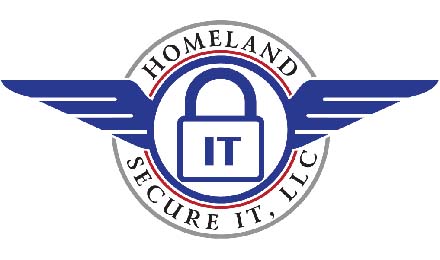Homeland Secure IT Alert for Wednesday, October 6, 2010
I realize I am sounding like a broken record (remember those?), however, Adobe has addressed vulnerabilities in their Adobe Reader, Adobe Acrobat, and also Adobe Air products which you should be aware of.
Skipping to the chase, please, for the love of God, update your Adobe products when prompted, or if NOT prompted, open each Adobe product and go to the Update option and do so… If you are running really old versions, you could just visit the Adobe.com website and download the latest versions, but be sure you update those too!
These vulnerabilities affect Apple Macintosh OS X, Microsoft Windows and even UNIX operating systems. Nobody is left out here.
Should you require assistance with this or any other computer / network security or support issue in the Greenville / Upstate SC area, feel free to call upon us at 864.990.4748 or email info@homelandsecureit.com
Original CERT alert follows…
—
—–BEGIN PGP SIGNED MESSAGE—–
Hash: SHA1
National Cyber Alert System
Technical Cyber Security Alert TA10-279A
Adobe Reader and Acrobat Affected by Multiple Vulnerabilities
Original release date: October 06, 2010
Last revised: —
Source: US-CERT
Systems Affected
* Adobe Reader 9.3.4 and earlier versions for Windows, Macintosh, and UNIX
* Adobe Acrobat 9.3.4 and earlier versions for Windows and Macintosh
* Adobe Reader 8.2.4 and earlier versions for Windows, Macintosh, and UNIX
* Adobe Acrobat 8.2.4 and earlier versions for Windows and Macintosh
Overview
Adobe has released Security Bulletin APSB10-21, which describes
multiple vulnerabilities affecting Adobe Reader and Acrobat.
I. Description
Adobe Security Bulletin APSB10-21 describes a number of
vulnerabilities affecting Adobe Reader and Acrobat. These
vulnerabilities affect Reader and Acrobat 9.3.4, earlier 9.x
versions, 8.2.4, and earlier 8.x versions.
An attacker could exploit these vulnerabilities by convincing a
user to open a specially crafted PDF file. The Adobe Reader browser
plug-in, which can automatically open PDF documents hosted on a
website, is available for multiple web browsers and operating
systems.
Additional information is available in US-CERT Vulnerability Note
VU#491991.
II. Impact
These vulnerabilities could allow a remote attacker to execute
arbitrary code, write arbitrary files or folders to the file
system, escalate local privileges, or cause a denial of service on
an affected system as the result of a user opening a malicious PDF
file.
III. Solution
Update
Adobe has released updates to address this issue. Users are
encouraged to read Adobe Security Bulletin APSB10-21 and update
vulnerable versions of Adobe Reader and Acrobat.
Disable JavaScript in Adobe Reader and Acrobat
Disabling JavaScript may prevent some exploits from resulting in
code execution. Acrobat JavaScript can be disabled using the
Preferences menu (Edit -> Preferences -> JavaScript; uncheck Enable
Acrobat JavaScript).
Adobe provides a framework to blacklist specific JavaScipt APIs. If
JavaScript must be enabled, this feature may be useful when
specific APIs are known to be vulnerable or used in attacks.
Prevent Internet Explorer from automatically opening PDF files
The installer for Adobe Reader and Acrobat configures Internet
Explorer to automatically open PDF files without any user
interaction. This behavior can be reverted to a safer option that
prompts the user by importing the following as a .REG file:
Windows Registry Editor Version 5.00
[HKEY_CLASSES_ROOT\AcroExch.Document.7] “EditFlags”=hex:00,00,00,00Disable the display of PDF files in the web browser
Preventing PDF files from opening inside a web browser will
partially mitigate this vulnerability. If this workaround is
applied, it may also mitigate future vulnerabilities.
To prevent PDF files from automatically being opened in a web
browser, do the following:
1. Open Adobe Acrobat Reader.
2. Open the Edit menu.
3. Choose the Preferences option.
4. Choose the Internet section.
5. Uncheck the “Display PDF in browser” checkbox.
Do not access PDF files from untrusted sources
Do not open unfamiliar or unexpected PDF files, particularly those
hosted on websites or delivered as email attachments. Please see
Cyber Security Tip ST04-010.
IV. References
* Security update available for Adobe Reader and Acrobat –
<http://www.adobe.com/support/security/bulletins/apsb10-21.html>
* US-CERT Vulnerability Note VU#491991 –
<http://www.kb.cert.org/vuls/id/491991>
* Adobe Reader and Acrobat JavaScript Blacklist Framework –
<http://kb2.adobe.com/cps/504/cpsid_50431.html>
____________________________________________________________________
The most recent version of this document can be found at:
<http://www.us-cert.gov/cas/techalerts/TA10-279A.html>
—


